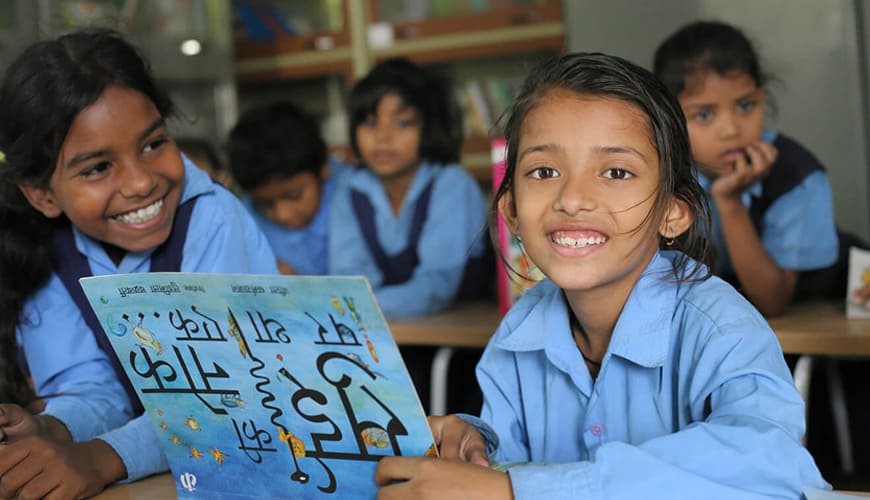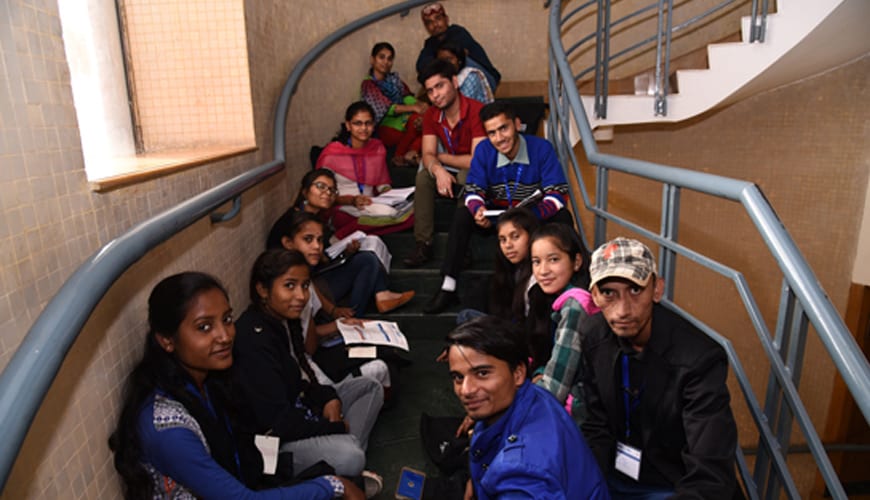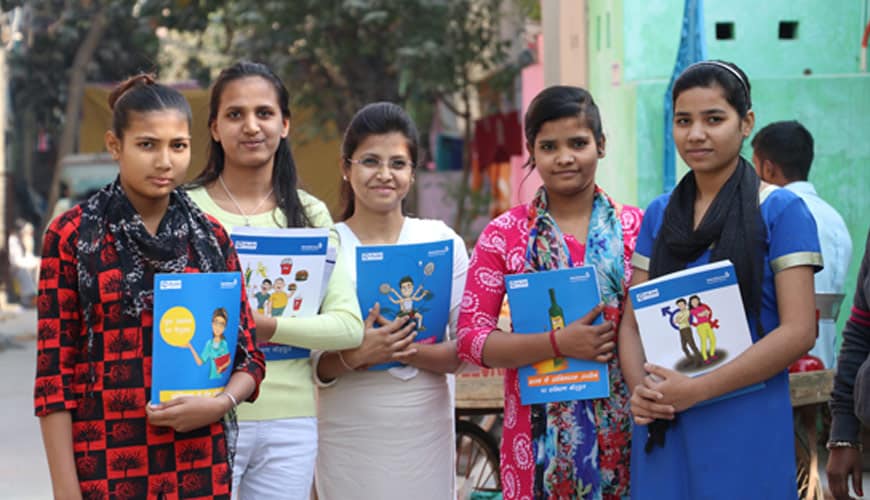80,000 households in Mangolpuri, Madanpur Khadar and Gautampuri in Delhi are witnesses to efforts to make the city safe for young women and give wings to their ambition. Young women here are building promising futures, reclaiming public spaces for themselves and shattering boundaries that routinely make their lives ‘safer’. Here, public school teachers advocate girls’ safety and sanitation needs so that they can continue higher education. In these communities, girls aspire to a career in sports and thrive through technical as well as vocational training. All this is the result of Plan India’s long-term gender transformation programme Safer Cities which focuses on the gap in programming and research pertaining to how adolescent girls experience public spaces differently than men.
Safer Cities has put adolescent girls at the centre and challenges the perception of safety and fear of violence that define girls’ negotiation. It supports girls and boys in becoming active citizens by building capacities and creating opportunities for participation in city life. The programme is also being implemented in two wards of Jaipur.
Safer Cities Key Outcomes
- Increased adolescent girls’ safety and access to public spaces
- Increased girls’ active and meaningful participation in urban development and governance
- Increased autonomous mobility in the city for adolescent girls
While Safer Cities works to empower girls, it also engages boys and men in the communities as allies. Strengthening local youth clubs is pivotal in effectively gathering evidence and data for Plan’s advocacy work. Programme activities help the children and youth visualise alternatives where safe spaces exist for them to counter the ever-present fear of violence. The integrated community-based approach uses innovative engagement modalities and gender transformative approaches. It also employs unique feedback and participatory research tools such as training curriculums, community scorecards and Information Education Communication (IEC) materials to involve parents and community leaders. Intergenerational dialogues help elders acknowledge the disparities and challenge the conventional understanding of safety. Dialogues were initiated within the community for addressing gender power relations and to challenge stereotypical social norms that perpetuate insecurity and exclusion of girls in cities.
Making Safer Cities community-led puts the onus of assessing public spaces from a gender lens and ensuring the safety of girls back on the neighbourhood. Plan India forged strategic partnerships with the Department of Women and Child Development, Delhi Police, transport service providers, Delhi Commission for Protection of Child Rights and the National Institute of Urban Affairs. Through Plan’s advocacy, public transport in Delhi was studied to understand the needs of adolescent girls and to recommend specific changes. A consultation was also held on public budgets from the lens of women and girls and the resultant policy brief ‘Gender and Governance at the Grassroots: A Study of South Delhi Municipal Corporation’s 2018 Budgets’ was published. Safer Cities takes pride in girl-led negotiations with local representatives for gender-sensitive budgeting for the programme area.
Safer Cities represents a collaboration between Plan International, Women in Cities International and UN-HABITAT, thus benefitting from the distinct and impressive track record each organisation boasts from previous work done to address violence against women and girls.








